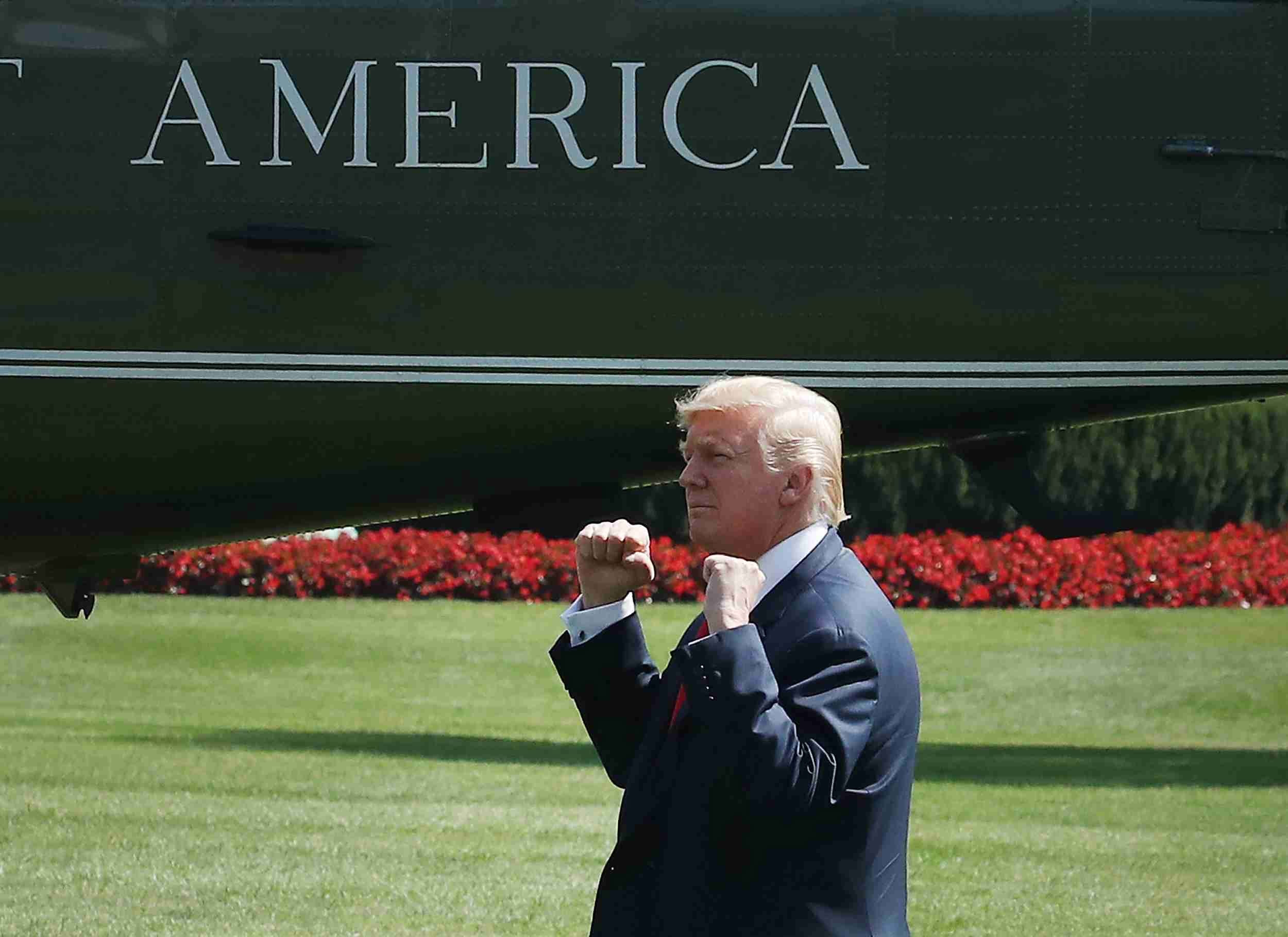
Business
20:09, 06-Aug-2017
No let-up likely in Trump trade war talk

Talk of trade war looks like it's here to stay for the time being, especially as data over the coming week seems more likely than not to aggravate US President Donald Trump's gripes with China and Germany.
While global trade has bubbled back into life after a lean few years, so too have fears of protectionism, leaving financial markets wary in an otherwise improving global economy.
In the last week US senators from both sides of the house urged Trump to stand up to China as he prepares to launch an inquiry into its intellectual property and trade practices in the coming days.

President Donald Trump gestures to a crowd that gathered to watch him depart on Marine One from the White House on August 4, 2017 in Washington, DC /VCG Photo
President Donald Trump gestures to a crowd that gathered to watch him depart on Marine One from the White House on August 4, 2017 in Washington, DC /VCG Photo
German Foreign Minister Sigmar Gabriel said last month it was a cause of "great concern" that the US could start a trade war with Europe.
At the moment, the working assumption for most investors is that international cooperation will win the day, as the International Monetary Fund pushed for earlier this year, before a full-blown trade war starts.
"Do I think that the US will be dumb enough to go ahead and put in place a series of measures which will act as an obstacle to trade with these countries? I suspect not," said Peter Dixon, global financial economist at Commerzbank in London.
The United States posted a much smaller goods trade deficit than expected in June, helped by an improvement in exports.
But this may be eclipsed by figures from China and Germany due in coming days.
Bumpy road

A cargo vessel anchors at the foreign trade container wharf of Qingdao Port in eastern China's Shandong Province, October 13, 2016. /Xinhua Photo
A cargo vessel anchors at the foreign trade container wharf of Qingdao Port in eastern China's Shandong Province, October 13, 2016. /Xinhua Photo
China's goods trade surplus for July, due on Tuesday, looks set to top 46 billion dollars, according to a Reuters poll of economists. That would be the second highest this year.
Although the surplus has fallen sharply year on year over the first half of 2017, it has increased 6.5 percent against the United States.
"We see a bumpy road ahead for the trade relationship between the two countries," said Yang Zhao, Nomura's chief China economist. "But it is unlikely that the two nations will enter a true trade war."
Part of the reason for China's bigger surplus with the US this year is the better performance of the world's no. 1 economy, Zhao said.
German figures, also due on Tuesday, are expected to show its goods trade surplus widened too, to 21 billion euros (24.7 billion US dollars) in June from 20.3 billion in May, according to the Reuters poll.
Germany had the world's biggest current account surplus in 2016 at 289 billion dollars and has been under pressure to boost domestic demand to lessen its reliance on exports – not least from European Union peers that want to raise their own competitiveness.
Berlin can point to the fact its trade surplus has actually fallen two percent in the 12 months to May compared with the same period a year ago, but that pace of progress may not be enough to spare it criticism from the United States.
"I suspect it's a lot of rhetoric at the moment," said Dixon at Commerzbank. "But that doesn't mean to say we can dismiss the risk."
(Source: Reuters)

SITEMAP
Copyright © 2018 CGTN. Beijing ICP prepared NO.16065310-3
Copyright © 2018 CGTN. Beijing ICP prepared NO.16065310-3